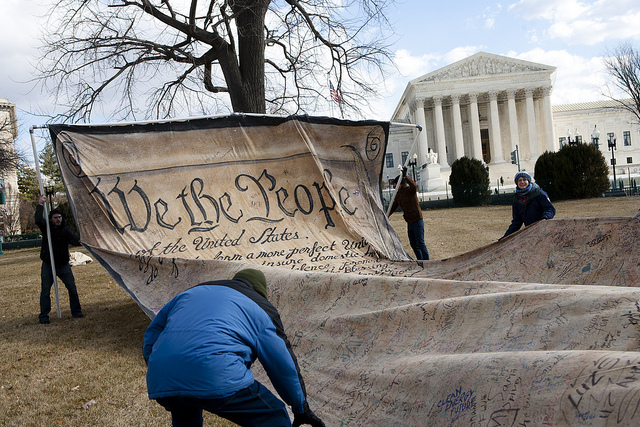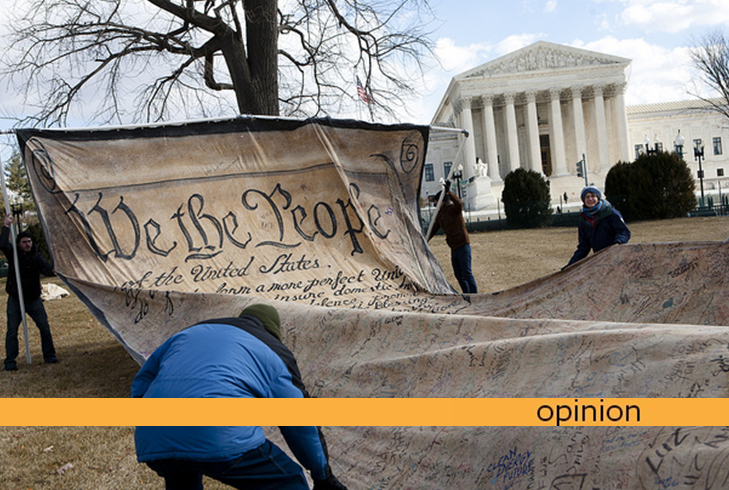Why the Supreme Court needs to uphold affirmative action

By Raul A. Reyes, NBCLatino
The Supreme Court will soon announce a decision on an affirmative action case, Fisher v. University of Texas. Abigail Fisher, who is white, applied to the University of Texas at Austin in 2008. Under the University’s policy, the top ten percent of every high school graduating class is guaranteed admission. Although Fisher missed the cutoff, she was still eligible to apply under a separate program. She was denied admission and she sued.
Now the Court is considering the use of race in college admissions. But Fisher was not rejected because of her race, and the University’s plan is consistent with the rule of law. Moreover, affirmative action is still vital today, to ensure that Latino and other minority students can access higher education.
Fisher says that she was rejected by the University because she is white. Not true. She applied during a very competitive year for admissions. Since she lacked top grades, she was competing for one of the University slots awarded on a points system based on a variety of factors. Even if Fisher were given points for being a minority student, she still would not have made the cut. She was simply not qualified that year to attend the University of Texas.
Affirmative action was designed to allow minority students full and equal access to higher education. However, the Supreme Court has placed limits on its use. The landmark University of California v. Bakke decision (1978) outlawed the use of racial quotas. In Grutter v. Bollinger (2003), the Court held that schools could consider race in admissions, so long as race was not the only factor. The University of Texas plan falls within the standards of both these cases. The University does not have a target, goal, or quota for minority students. They rely on seventeen different variables to make their admissions decisions, including essay scores, test scores, leadership, work history, community service, school activities, and race.
As the Mexican American Legal and Educational Defense Fund (MALDEF) noted in a brief supporting the University, race is only “a factor of a factor of a factor of a factor” in the University’s admission policy.
The New York Times has reported that eliminating racial preferences would reduce the number of minority students at virtually every selective college and graduate school. Education experts at Georgetown University have found that Hispanics are still underrepresented at elite schools. So we should be devising more ways for Latino, African American, and low-income students to attend college, not closing off paths of opportunity.
Affirmative action policies benefit everyone. Students benefit from a diverse academic environment. Society benefits from an educated, multicultural work force. No wonder that the list of groups supporting the University of Texas includes leaders of the military, major corporations, civil rights organizations, women’s groups, and academic institutions. Justice Sonia Sotomayor herself has spoken about the importance of affirmative action. She is living proof that it works.
True, affirmative action is not perfect. Yet Fisher’s case does not belong before the Supreme Court. All the lower courts sided with the University. Fisher has already graduated from another college, and is not seeking monetary damages. She even had the chance to attend the University of Texas (provided she attended another campus for a year and maintained a 3.2 GPA) but declined it. Legal analyst Jeffrey Toobin posits that the Court took Fisher’s case because Chief Justice John Roberts is out to end affirmative action. If so, a decision for Fisher would be a clear instance of judicial activism and an unfortunate stain on the court’s reputation.
The Supreme Court must uphold the University of Texas admissions plan. A victory for Abigail Fisher would do nothing for her – yet would greatly harm Latino and other minority students.
This article was first published in NBCLatino.
Raul A. Reyes is an attorney and member of the USA Today Board of Contributors.
[Photo by Public Citizen]

